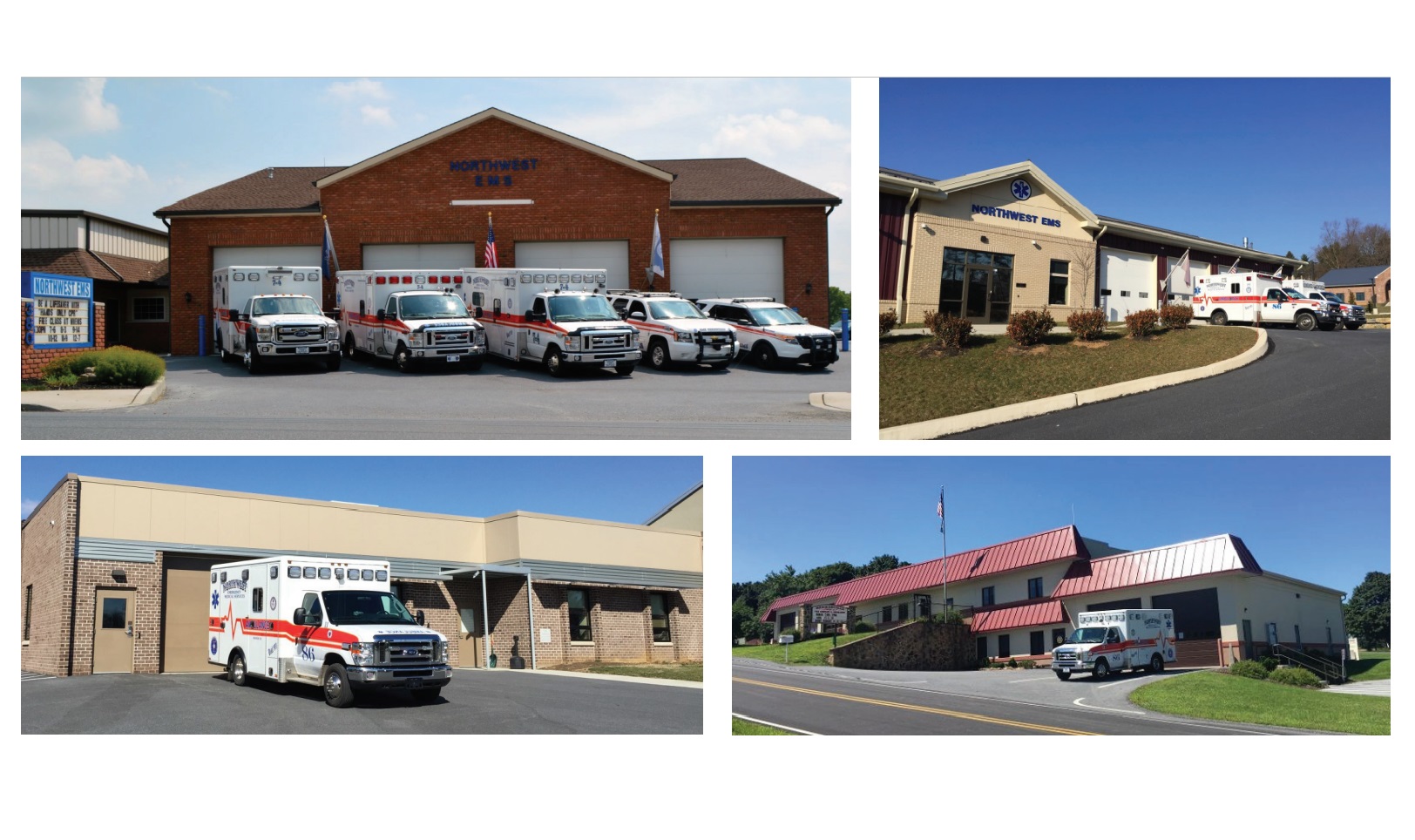Like community ambulance services everywhere, Northwest EMS has been struggling with chronic operating deficits, as revenue from subscriptions and reimbursements fail to keep pace with expenses.
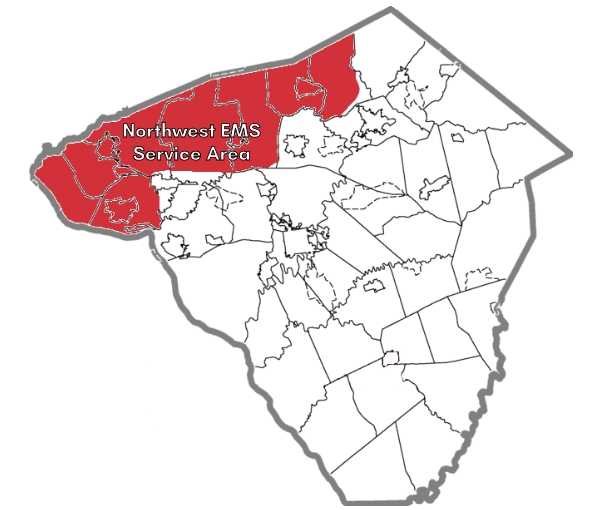
Compounding the problem of late have been increased supply costs due to inflation; as well as the labor shortage, which has made staff recruitment harder than ever.
After several years of discussion, leaders of Northwest EMS and the communities it serves have a solution they are looking to implement.
At the end of August, they will host the first public hearing on creating a regional emergency services authority.
It would be overseen by a board with representatives from all participating municipalities. It would raise revenue through an annual fee, either assessed on property owners or paid by the municipal government.
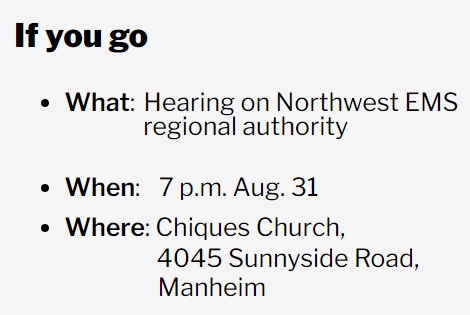
Combined with insurance reimbursements, estimated to account for just over half of projected revenue, the arrangement would put Northwest EMS on a firm financial footing and ensure that emergency services remain available 24/7, organizers say.
It’s a “great solution,” Elizabethtown Council President Marc Hershey told the Lancaster County commissioners at a presentation last month.
The hearing begins at 7 p.m. Wednesday, Aug. 31, at Chiques Church of the Brethren, 4045 Sunnyside Road, Manheim.
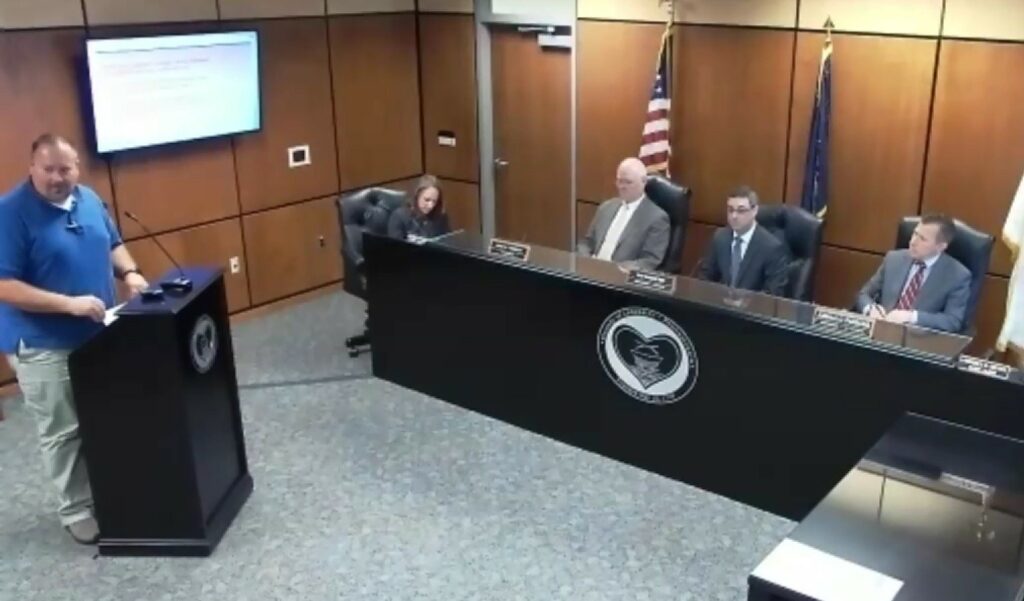
Structural deficits
The presentation laid out the case that “business as usual” is unsustainable. A website that Northwest EMS has set up does the same.
The nonprofit EMS organization is projecting a deficit for 2022 of more than $500,000 in an operating budget approaching $5 million. That follows deficits the previous six years: Northwest EMS has been drawing down reserves to stay afloat, but it can’t keep doing that forever, Hershey said.
Insurers’ reimbursements don’t come close to covering Northwest EMS’ costs: The gap between what it bills and what it receives exceeds $4 million a year. Many patients simply don’t pay: In 2019, Northwest EMS referred $660,000 in unpaid bills to its collection service.
Its other major revenue source is subscriptions: Annual plans range from $50 for individuals to $80 for families. About 44% of households in Northwest EMS service area participate.
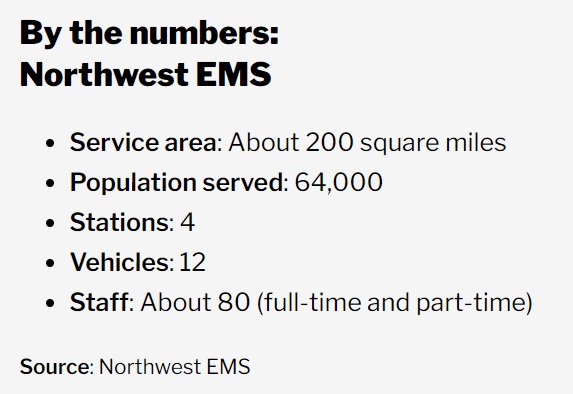
The proposed authority is essentially a way to raise that figure to 100%. Its annual fee would be comparable to the subscription fee. Large commercial and institutional properties might be assessed more; those details would have to be worked out, Hershey said.
Authorities are public entities, subject to Pennsylvania’s Right-to-Know and open meetings laws. That would make the authority and its actions transparent and accountable, Hershey said. Just as importantly, it would keep control local, said Bob Enck, vice chairman of the Northwest EMS board.
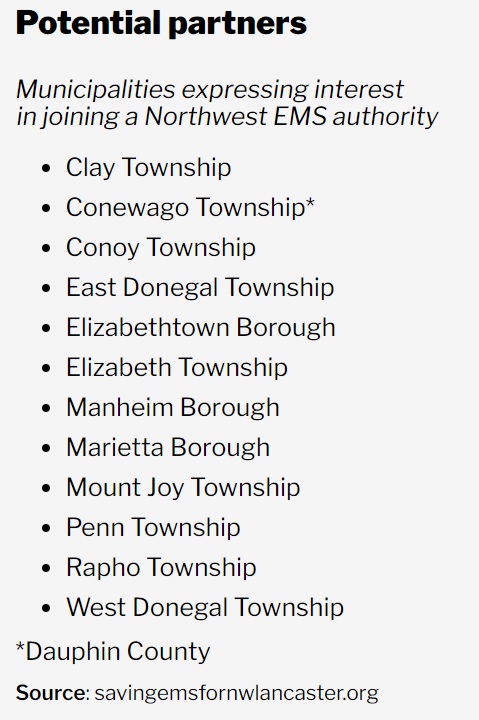
Pennsylvania law spells out the process for forming an administrative authority. Following this month’s hearing, participating municipalities will have to pass ordinances authorizing its formation. Northwest EMS’ timeline calls for it to be set up by the end of the year.
The authority would put together a plan of services and fees, leading to a second public hearing early next year. The new system would be fully in place by summer or fall 2023.
Emergency service authorities are rare in Pennsylvania, but not unknown. There are seven in western Pennsylvania and one in Huntingdon County in central Pennsylvania, according to LNP.
It does not appear there are any in eastern Pennsylvania. In this part of the state, Northwest EMS would be “pioneers,” Hershey said, but given how many ambulance services are facing similar financial challenges, it wouldn’t be surprising if others followed its example.
Over the past several months, Northwest EMS officials have been airing the plans at borough and township meetings. Supervisors have been sympathetic but have also expressed reservations about adding to their residents’ financial obligations.
The county commissioners said they’re supportive. Commissioner Josh Parsons called it a “model solution” and said, “I think it’s great you’re taking it on and, hopefully, proving that it does work.”
Hershey said Northwest EMS anticipates submitting an application for American Rescue Plan Act funds to pay startup costs and perhaps fund a rebate program to ease the fee burden for low-income senior citizens.
